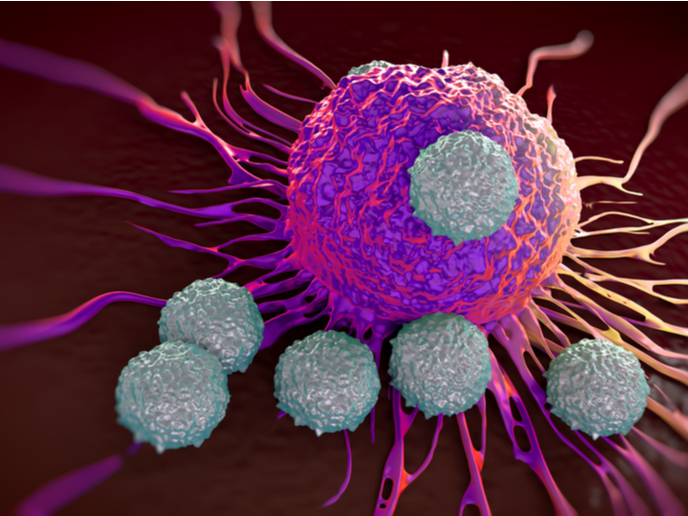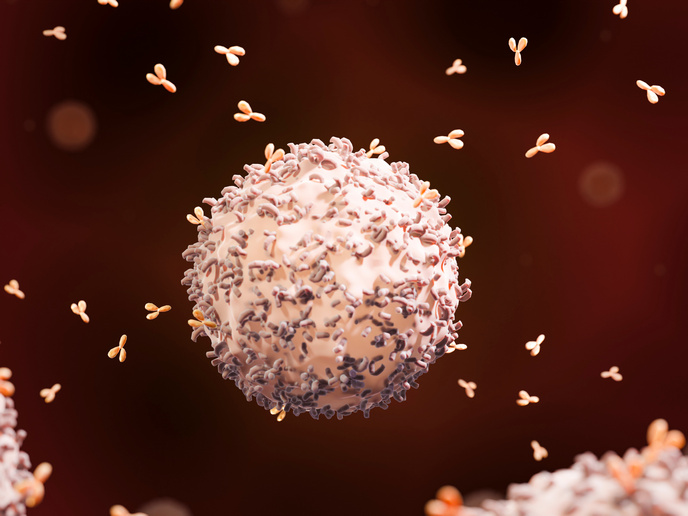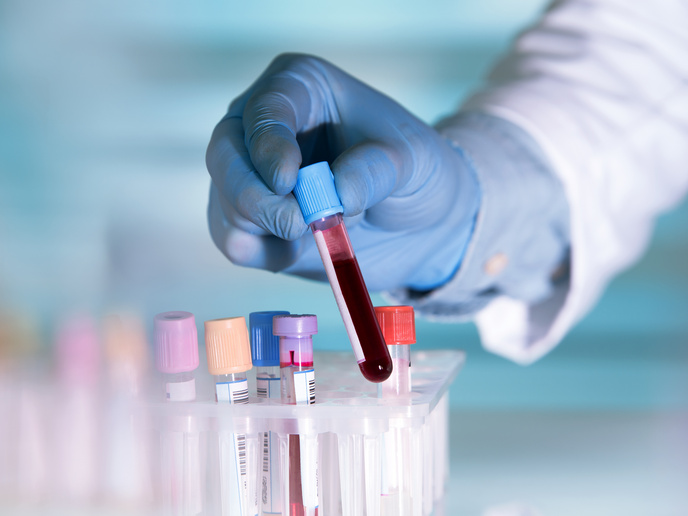Combining metabolism manipulation with immunotherapy as an alternative anticancer strategy
Despite promising preclinical results, immunotherapy has not proved as effective in many cancer patients. The conditions in the tumour microenvironment in terms of nutrient supply, oxygen levels and acidity may contribute to immunotherapy efficacy by impacting immune cell activation and function. Moreover, the different cell types present in tumours may synergise or compete metabolically.
Studying the metabolism of antitumour T-cells
To provide insight into immune cell metabolism, scientists from the Immunometabolomics project have focused on cytotoxic CD8+ T-cells(opens in new window) known for their exceptional cytotoxic activity and killing of tumour cells. The research was undertaken with the support of the Marie Skłodowska-Curie Actions (MSCA) programme and followed two different research leads. The first was the pentose phosphate pathway(opens in new window) that generates the high-energy molecule nicotinamide adenine dinucleotide phosphate (NADPH)(opens in new window) necessary for anabolic reactions and ribose-5-phosphate sugar synthesis used in DNA and RNA. The second pathway was serine catabolism implicated in nucleotide synthesis. The MSCA research fellow Juan Carlos García-Cañaveras along with the team of Agustín Lahoz(opens in new window) at IIS-Hospital La Fe in Valencia cultured CD8+ T-cells in vitro in different media or under pharmacological inhibition of specific enzymes, such as glucose-6-phosphate dehydrogenase (G6PD)(opens in new window) which is implicated in the pentose phosphate pathway. Using flow cytometry, they characterised the activation and proliferation of T-cells as well as their effector function through interferon-gamma and tumour necrosis factor-alpha production. They also performed metabolomics analysis using liquid chromatography coupled to mass spectrometry that allow for monitoring the incorporation of carbon isotopes into downstream metabolites and for inferring changes in metabolic pathways. “We have overcome technical limitations, and using state-of-the-art mass spectrometry-based metabolomics, we have advanced into knowledge the CD8+ T-cell metabolism,” emphasises Lahoz. Through novel cellular assays, the research team was able to assess the pentose pathway in a more sensitive and specific way and develop specific inhibitors for targeting G6PD(opens in new window) in cells. These tools were central for deciphering the role of G6PD in effector CD8+ T-cell responses. Results showed that inhibition of the pentose phosphate pathway decreases effector response in CD8+ T-cells and can thus serve as a potential therapeutic target in autoimmune diseases. Ongoing work will determine if time-controlled enhancement of the pentose pathway in CD8+ T-cells could increase effector responses and antitumour activity. Moreover, the Immunometabolomics team is interested in the relevance of the pentose pathway in the low-glucose tumour microenvironment.
Insight into serine metabolism unveils new therapeutic targets
With respect to serine metabolism, scientists developed an inhibitor against the key enzyme serine hydroxymethyltransferase (SHMT)(opens in new window) implicated in nucleotide synthesis and thus in proliferation. Blocking serine catabolism in T-cell acute lymphoblastic leukaemia(opens in new window) (T ALL) inhibited proliferation in vitro and increased survival in a mouse model of the disease. Collectively, these findings indicated that SHMT inhibition could serve a complementary strategy in the treatment of T ALL. “Overall, enhancing antitumour immune responses is a key objective of our team, and we want to evaluate the combination of metabolism manipulation with immunotherapy as an alternative anticancer strategy,” concludes García-Cañaveras. The recent regulatory approval of combining antifolate treatment and immunotherapy for lung cancer corroborates the Immunometabolomics anticancer strategy.







